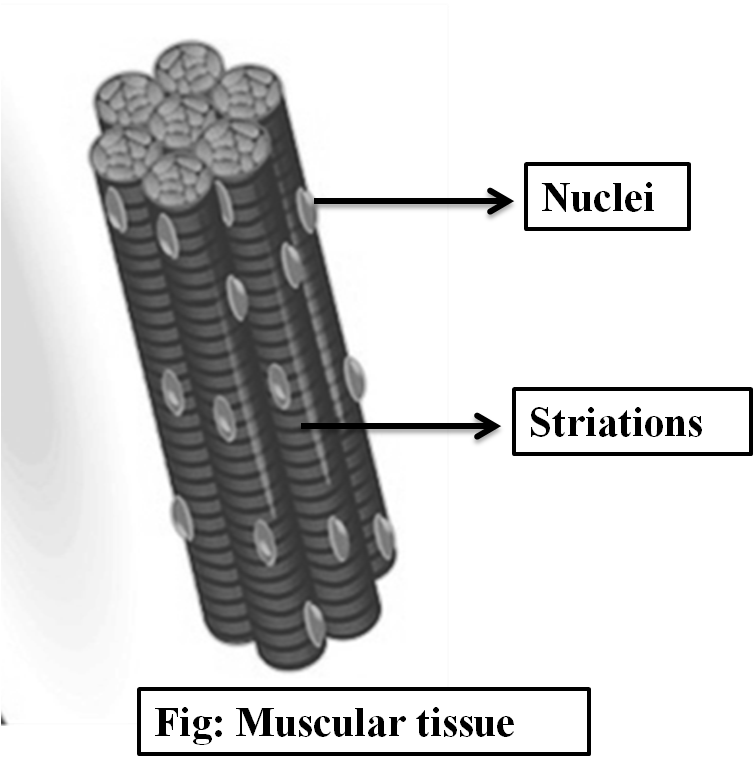
Involuntary muscular contraction is called
(a)Muscle sprain
(b)Muscle fatigue
(c)Muscle spasm
(d)Muscle twitch
Answer
584.7k+ views
Hint: A Muscle contraction may happen either under the control of our will or without conscious control. When the muscle contraction takes place without our conscious control, then such contraction is known as involuntary contraction.
Complete answer:
Muscle spasm is also known as involuntary muscle contraction. It is the sudden involuntary movement of one or more muscles mostly due to overuse and muscle fatigue, dehydration, and electrolyte abnormalities.
Additional Information: -A bundle of fibrous tissue that can contract, producing movement in or maintaining the position of parts of the body is called a muscle.
-Muscles in the human body are found in the range of 640-850.
-A muscle sprain occurs due to overstretching of the ligaments, mostly at joints.
-The reduction in the force of contraction of the muscle fibers after their prolonged stimulations is known as muscle fatigue.
-A muscle twitch is the spontaneous, involuntary contraction and relaxation of the muscle, involving fine muscle fibers.
-The muscular tissues are mesodermal in origin.
-A muscle fiber in contraction undergoes a period of recovery.
-The Motor unit is the functional unit of a muscle.
-Even in a relaxed muscle, about 5% of motor units are in the state of contraction. This partial contraction of a relaxed muscle is known as tonicity.
So, the correct answer is, ‘Muscle spasm.’
Note: Examples of involuntary muscles are the smooth muscles (non- striated muscles), which are found lining the internal organs (such as the esophagus, stomach, intestines, etc.) and blood vessels. These muscles contract slowly and rhythmically. The cardiac muscle is another example of involuntary muscle that has striations when viewed under the microscope but it does not contract under the control of the will.

Complete answer:
Muscle spasm is also known as involuntary muscle contraction. It is the sudden involuntary movement of one or more muscles mostly due to overuse and muscle fatigue, dehydration, and electrolyte abnormalities.
Additional Information: -A bundle of fibrous tissue that can contract, producing movement in or maintaining the position of parts of the body is called a muscle.
-Muscles in the human body are found in the range of 640-850.
-A muscle sprain occurs due to overstretching of the ligaments, mostly at joints.
-The reduction in the force of contraction of the muscle fibers after their prolonged stimulations is known as muscle fatigue.
-A muscle twitch is the spontaneous, involuntary contraction and relaxation of the muscle, involving fine muscle fibers.
-The muscular tissues are mesodermal in origin.
-A muscle fiber in contraction undergoes a period of recovery.
-The Motor unit is the functional unit of a muscle.
-Even in a relaxed muscle, about 5% of motor units are in the state of contraction. This partial contraction of a relaxed muscle is known as tonicity.
So, the correct answer is, ‘Muscle spasm.’
Note: Examples of involuntary muscles are the smooth muscles (non- striated muscles), which are found lining the internal organs (such as the esophagus, stomach, intestines, etc.) and blood vessels. These muscles contract slowly and rhythmically. The cardiac muscle is another example of involuntary muscle that has striations when viewed under the microscope but it does not contract under the control of the will.

Recently Updated Pages
Master Class 12 Economics: Engaging Questions & Answers for Success

Master Class 12 Physics: Engaging Questions & Answers for Success

Master Class 12 English: Engaging Questions & Answers for Success

Master Class 12 Social Science: Engaging Questions & Answers for Success

Master Class 12 Maths: Engaging Questions & Answers for Success

Master Class 12 Business Studies: Engaging Questions & Answers for Success

Trending doubts
Which are the Top 10 Largest Countries of the World?

What are the major means of transport Explain each class 12 social science CBSE

Draw a labelled sketch of the human eye class 12 physics CBSE

Why cannot DNA pass through cell membranes class 12 biology CBSE

Differentiate between insitu conservation and exsitu class 12 biology CBSE

Draw a neat and well labeled diagram of TS of ovary class 12 biology CBSE




